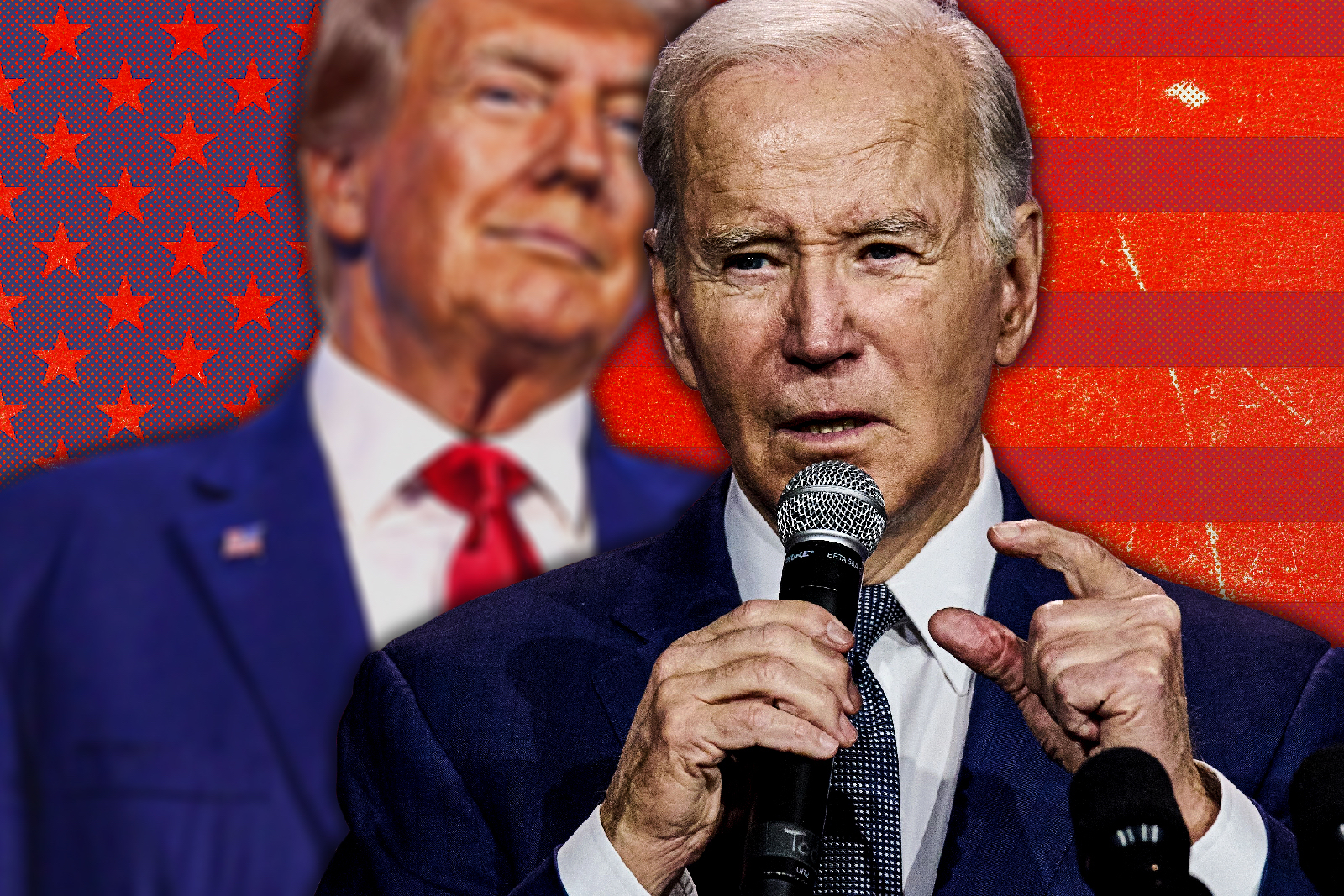
Politics
2024: The Foreign Policy Election
Next year’s presidential election will be different. Not because the candidates for the two major parties will be, as a rematch between President Joe Biden and former President Donald Trump seems inevitable. But what motivates voters to choose between either candidate will have changed dramatically. The presumptive nominees now have an incumbency record that voters will judge them on in the next election that was not previously available to the electorate in the last cycle.
Although Americans will weigh multiple variables when making their final choice, foreign policy will ultimately be the deciding factor in the race for the White House. As the United States continues to contend with increasing geopolitical crises abroad, the competing visions between Joe Biden and Donald Trump on America’s obligations and role in the world will determine their electoral fate next year.
“It’s the economy, stupid,” is a commonly used phrase every election season as the simplistic notion that voters will ultimately decide for president based on their relative financial circumstances. It was born from the 1992 presidential election when James Carville coined the phrase advising then-candidate Bill Clinton on defeating President George H.W. Bush on his out-of-touch economic message. The economic decision-making theory’s connection to presidential voting may have been true for past elections, but it will not be the main story in 2024.
I acknowledge that many Americans have an increased pessimistic outlook on their current financial standing and the country’s economic future. As of fall 2023, eight in ten adults say the U.S. economy is faring poorly, while less than 20% say it is excellent or good. Inflation and higher interest rates, among other factors, have primarily contributed to this gloom-ridden sentiment. The economy, with other issues like abortion and voting rights, stands a probable chance to shape voters’ minds in the periphery. But as the world seems to crash and burn all around, the American electorate will most crucially have to decide what Washington will do about it, if anything at all.
The United States is currently facing an unprecedented level of geopolitical crises abroad. Ukraine’s counter-offensive has fizzled out, with the Kremlin continuing to occupy about one-fifth of the country’s territory. The Israel-Hamas war also rages on in Gaza as the number of civilian casualties surpasses 20,000. To make matters more unsettling, in a summit meeting last month, Chinese President Xi Jinping warned President Joe Biden that Taiwan would be reunified with China by military force if necessary. On the initial campaign trail, Biden and Trump have rhetorically clarified their visions for the country to meet these international challenges, with the two men’s views diverging more than ever.
The Trump Doctrine for foreign policy can be summarized mainly by the idea of ‘America First.’ To Trump and the Republican Party, ‘America First ‘ refers to an isolationist foreign policy that emphasizes the country’s need to redirect its focus on domestic priorities under the guise of American exceptionalism and nationalism. In his previous term, Trump espoused a skepticism of multilateralism, thrusting America’s leadership role in the world on a course not seen in nearly a century. The former president raised tariff barriers on multiple countries, including allies. He unilaterally withdrew the United States from previously signed global commitments, such as the Iran nuclear deal and the Paris climate agreement. And most distressingly, he expressed a willingness for the United States to exit NATO, a military alliance that has been the cornerstone of America’s security strategy since the dawn of the Cold War.
The Republican Party’s current drift towards isolationism marks a stark departure from the days of President Ronald Reagan, whose presidency was defined by a proactive engagement in international politics, particularly his assertive stance against the Soviet Union. The famous exhortation by Reagan, “Mr. Gorbachev, tear down this wall,” symbolized this outward-looking approach. However, under Donald Trump’s leadership, the party’s mantra has shifted to a more inward-focused ‘America First’ policy. This transformation could resonate with voters, potentially handing Trump the presidency come next November.
‘America is back’ was a repeated slogan by the Biden campaign in 2020 that encapsulates Biden’s view on American foreign policy, particularly relative to Trump. As a relic of the Senate for decades and many years on the Foreign Relations Committee, Biden maintains that the United States is indispensable to global affairs and must seek to retain its supremacy over adversaries and competitors. Biden holds that the United States should defend democratic values globally and shore up alliances to protect its interests abroad.
Since Russia invaded Ukraine in February 2022, Biden has committed more than $75 billion in assistance to Ukraine while also reinvigorating America’s role in NATO. He has supported Israel’s military campaign to defeat Hamas after the October 7 terrorist attacks. However, he has pressed Israel to move with further restraint due to the large number of civilian deaths in Gaza. Since becoming president, Biden has repeatedly expressed that the United States would come to Taiwan’s defense if China attempted to reclaim the wayward territory by force and that the Taiwanese people should be the sole determinants of the sovereignty of the island. In 2020, Biden made the case and won with ‘America is back,’ but now he must convince a more skeptical electorate in 2024 that America must continue to lead.
There is no doubt that President Joe Biden’s vision of American foreign policy supersedes that of former President Donald Trump. The United States has been the leader of global politics since the end of World War II and should not abandon that role anytime soon. With the world facing unprecedented international crises, Washington’s leadership is more critical than ever. And as these crises come to the forefront of voters’ minds, foreign policy will ultimately decide who will be the occupant of the White House for the next four years.

